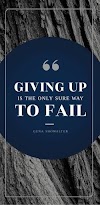By : Habeebullah Gobir 300level student, Law
In contemporary times in Nigeria, Muslims have been at the receiving end of institutional discrimination and this is becoming so alarmingly pronounced, even in other part of the world where western cultural norms hold sway.
The way and manner with which Muslims are being treated in the modern society are not appealing to eyes, neither suitable to the ear. In several human societies, Muslims have been tagged terrorists, even when there is no reason for such discriminatory appellation. The actions of few humans have been used by a population of brainwashed people to measure Islam in an attempt to put the religion in bad light.
Whereas, every religion and culture has the trait of savagery and viciousness inherently built in its adherents. Which religion or culture doesn’t have immoral and corrupt people in its fold? Yet, only the Muslims are singled out and criticised for crimes being committed by all. These wrong tag and discrimination in the word today are affecting Muslims both in their daily life activities and in practising their religion.
Therefore, this article aims at analysing the discrimination Muslims are presently facing in Nigeria, especially on the use of hijab by young Muslim ladies in school.
It is an undeniable fact that wearing of hijab in Islam is one of the attributes of identifying pious Muslim women. Not only that, it is an act of showing obedience to Allah who ordered women to cover their head and other fascinating parts of their body. It is saddening when Muslim ladies are denied their rights to use hijab in school, after the Constitution of Nigeria gave them religious freedom. In law and morality, the action of those stopping Muslim women to use hijab is wrong.
Undoubtedly, the freedom to practise any religion in Nigeria is guarantee and circumscribed in Section 38 (1) of 1999 Constitution as amended.
It states: “Every person shall be entitled to freedom of thought, conscience and religion, including freedom to change his religion or belief, and freedom (either alone or in community with others, and in public or in private) to manifest and propagate his religion or belief in worship, teaching, practice and observance" By the virtue of this section, it is crystal clear that our right to practice our desired religion is guarantee under the law and as such, Muslims are entitled to wear their hijab anywhere as it is part and parcel of their religion. By this, any act of restraining Muslim women from using their hijab while in school is a direct violation of their right to freedom of religion.
Without doubt, public schools are bound by this constitutional provision. But, many have argued that private schools are not expected to follow this constitutional provision and that they are at liberty to decide the dress code for students.
In my opinion, the constitution guarantees the rights of all religions’ adherents, including Muslims, to practice their religions in the best way as stipulated by the tenets of their religions. Section (1) of the 1999 Constitution further goes to declared itself to be supreme and above any other law and enactment.
The Section (1) states: “This Constitution is supreme and its provisions shall have binding force on the authorities and persons throughout the Federal Republic of Nigeria.”
By the virtue of the supremacy of the Constitution, the regulations laid down by private schools’ proprietors for banning Muslim girls from using hijab contravenes the provisions of the Constitution and as such, it is null and void.
The private school proprietors’ order is an infringement on the constitution-guaranteed rights of Muslim students to religious freedom and by that, it goes contrary to Section 38(1) of the Constitution and once any regulation goes against the Constitution, the Constitution shall prevail as provided under Section (1), Sub-section (3), which states: “If any other law is inconsistent with the provisions of this Constitution, this Constitution shall prevail, and that other law shall, to the extent of the inconsistency, be void.”
One of my learned friends argued vehemently that in law, one can waive his rights. If the students are informed before or at the time of admission, and they accept to study there without hijab, it would deemed that they had waived their right to wear hijab in that school.
Even if any Muslim parent decides to enroll his child to that school after his had been informed about the proprietor’s idea about the use of hijab, that cannot and will not lead to acquiescence because fundamental human rights are actionable anytime you feel like they are being infringed upon or they are likely to be infringed upon.
Wearing of hijab in private school is constitutionally guarantee and any act, which prevent Muslim from using their hijab, while in school is wrong morally and constitutionally.
It is noteworthy to state here that Islam is a religion of peace that respects its fundamental tenets and cannot bend its rules for any law formulated by human being. The use of hijab is part and parcel of Islam.
Habeeb, is a 300-Level Law, UDUS that writes for PEN PRESS UDUS






0 Comments